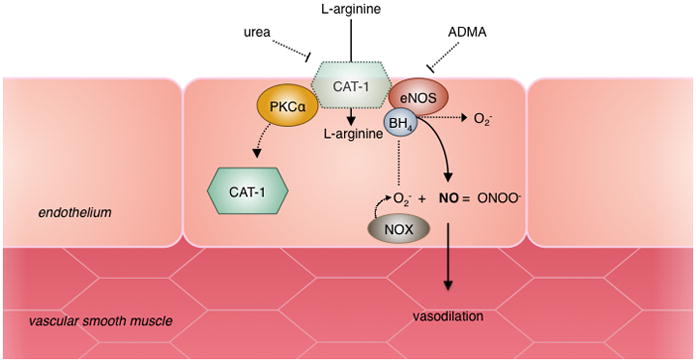Figure 2.

Nitric oxide (NO) is synthesized from L-arginine by endothelial nitric oxide synthase (eNOS) and diffuses into the vascular smooth muscle where it initiates vasodilation. Elevated levels of ADMA and oxidative stress contribute to endothelial dysfunction in early stages of CKD. ADMA inhibits NO synthesis through competitive inhibition of eNOS. Superoxide (O2−) is produced by NADPH oxidase (NOX) enzymes and combines with NO, forming peroxynitrite (ONOO−) leading to reduced NO bioavailability. Oxidation of the eNOS cofactor BH4 can also lead to uncoupling of eNOS resulting in further O2− production. In later stages of CKD, increased levels of circulating urea inhibit L-arginine transport through the cationic amino acid transporter (CAT-1) and post-translational modifications of CAT-1 by protein kinase C alpha (PKCα) result in decreased transport activity and internalization of CAT-1 to the cytosol.
